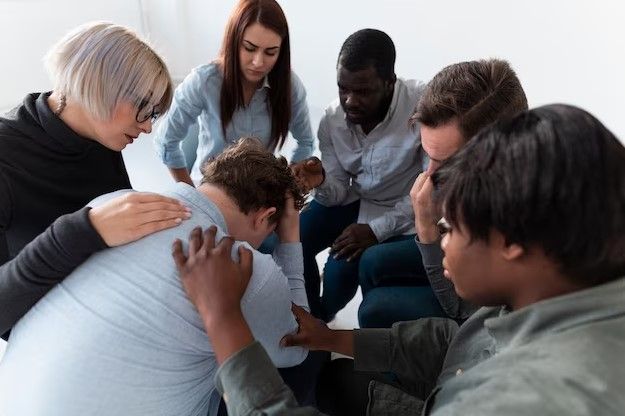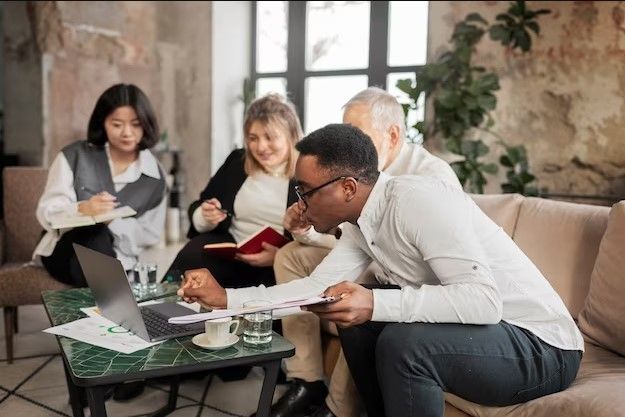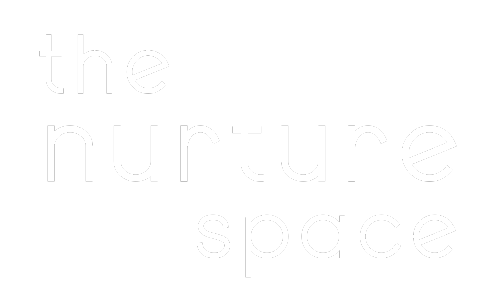Cultural Sensitivity in Family Counselling
Cultural sensitivity in family counselling is a fundamental aspect that plays a pivotal role in the effectiveness of therapeutic interventions. It encompasses an understanding and appreciation of the diverse cultural backgrounds, beliefs, and practices that families bring into the counselling setting. This understanding is critical because cultural factors significantly influence how individuals perceive mental health, express emotional distress, and seek help.
The significance of cultural sensitivity lies in its capacity to foster a more empathetic, respectful, and effective therapeutic environment. When mental health counsellors are culturally sensitive, they are better equipped to recognize and address the unique challenges that arise from cultural differences. This approach helps avoid misunderstandings, reduces biases and stereotypes, and builds a stronger therapeutic alliance. Moreover, culturally sensitive counselling can lead to more accurate assessments and tailored interventions, which are crucial for achieving positive mental health outcomes.
Being culturally sensitive also means acknowledging and respecting the client's cultural identity, which includes factors such as ethnicity, language, religion, gender identity, sexual orientation, and socioeconomic status. It involves understanding the impact of these cultural factors on the individual's life experiences and mental health. This comprehensive approach ensures that the counselling process is not only about treating symptoms but also about understanding the client in the context of their cultural background.
Setting the Stage for an Inclusive Counselling Approach
Setting the stage for an inclusive counselling approach begins with creating a safe and welcoming environment where all clients feel valued and understood. This includes being aware of one’s own cultural biases and actively working to mitigate their impact on the counselling relationship. It also involves continuous learning and adapting to meet the diverse needs of clients.
An inclusive counselling approach is characterised by open communication, where clients are encouraged to share their cultural experiences and perspectives. Counsellors should be skilled in asking culturally relevant questions and showing genuine interest in understanding the client's worldview. This approach requires flexibility and creativity in adapting counselling techniques and strategies to align with the client's cultural values and practices.
Furthermore, an inclusive approach involves advocating for the client's needs, which may include collaborating with other healthcare professionals, community leaders, and cultural experts. It also encompasses being informed about the cultural resources available in the community and referring clients to these resources when appropriate.
Cultural sensitivity in family counselling is not just a professional or cultural competency only; it is a commitment to understanding, respecting, and valuing the cultural diversity of clients. By setting the stage for an inclusive counselling approach, mental health professionals can create a therapeutic environment where all family members feel heard, understood, and supported, ultimately leading to more effective and meaningful counselling experiences.
Cultural Competence in Counselling: A Core Skill
Cultural competence in the context of family therapy refers to the ability of therapists to understand, appreciate, and effectively work with families from diverse cultural backgrounds. This skill involves recognizing and respecting the unique cultural values, beliefs, traditions, and practices that each family brings to the therapy setting. A culturally competent therapist acknowledges the influence of culture on family dynamics, communication styles, and the perception of mental health issues. The right therapist also must be adept at integrating this cultural awareness into their therapeutic approach, ensuring that interventions are respectful of and relevant to the family's cultural context.
The Impact of Cultural Competence on Therapeutic Outcomes
The impact of cultural competence on therapeutic outcomes is profound. When therapists are culturally competent, they are more likely to build trust and rapport with clients, which is crucial for effective therapy. This trust fosters a safe space where clients feel comfortable sharing their experiences and perspectives. Culturally competent therapy leads to more accurate assessments, as therapists are better able to understand the client's issues in the context of their cultural background. Additionally, a culturally competent therapist, tailored interventions are often more engaging and effective, resulting in higher client satisfaction, better compliance with treatment plans, and improved overall mental health outcomes.
Navigating Mental Health Services in Diverse Cultures

Providing mental health services to diverse families comes with several challenges, such as language barriers, cultural misunderstandings, and differing beliefs about mental health and treatment. Therapists must navigate these challenges by adopting strategies like employing bilingual staff or interpreters, seeking cultural consultation, and continuously educating themselves about different cultural perspectives. It's also important to foster an inclusive environment where all cultural expressions are welcomed and respected. Strategies such as community outreach and collaboration with culturally specific organisations can also be effective in making services more accessible and relevant to diverse families.
The Role of Mental Health Professionals in Multicultural Settings
In multicultural settings, the role of mental health professionals extends beyond the provision of therapy. They act as cultural brokers, mediators, and advocates. They must be aware of the systemic and societal factors that may impact their client's mental health and be prepared to address these issues within their scope of practice. Mental health professionals should also advocate for policies and practices that promote cultural competence within their organisations and the wider mental health field.
Essentials of Cultural Competence for Therapists
The core components of cultural competence in counselling include cultural awareness, cultural knowledge, cultural skills, cultural encounters, and cultural desire. Cultural awareness involves recognizing one's own cultural biases and prejudices. Cultural knowledge refers to understanding different cultural practices and worldviews. Cultural skill means being able to effectively integrate cultural knowledge into practice. Cultural encounters are the interactions with clients from diverse backgrounds, and cultural desire is the motivation to become culturally competent. Key skills include empathetic listening, flexibility, open-mindedness, and the ability to engage in self-reflection and growth.
Cultivating Cultural Competence in Counselling Practice
Cultivating cultural competence is an ongoing process that involves continuous learning and practice. Therapists can engage in cultural competence training, attend workshops, and participate in cultural immersion experiences. Reflective practice is crucial, where therapists regularly examine their cultural assumptions and biases. Networking with other culturally competent professionals and seeking supervision or mentorship can also be beneficial in developing and refining these skills.
Mental Health Professionals: Advocates of Cultural Sensitivity
In diverse environments, mental health professionals have the responsibility to provide equitable and culturally appropriate care. They face challenges such as navigating cultural nuances, dealing with institutional barriers, and often working with limited resources. They need to be aware of and sensitive to the cultural, social, and economic contexts that influence their clients' lives and mental health.
Strategies for Effective Communication and Understanding
Effective communication in diverse environments requires more than just language proficiency; it involves understanding cultural nuances in communication styles. Strategies include using culturally appropriate non-verbal communication, employing active listening skills, and being open to learning from clients about their cultural perspectives. Understanding also involves empathy and the ability to see the world from the client's cultural viewpoint. Creating an environment where open, respectful, and non-judgmental communication is encouraged is key to effective understanding in multicultural counselling settings.
Incorporating Cultural Considerations in Mental Health Care
Integrating cultural backgrounds in mental health care is crucial for providing effective and respectful treatment. Best practices include conducting cultural assessments as part of the intake process to understand each client's cultural background, beliefs, and values. Therapists should also use culturally adapted assessment tools and techniques to ensure they are appropriate and relevant. Another best practice is to involve family and community members, when appropriate, to understand the client's support system and cultural context. Collaboration with culturally specific organisations can provide additional insights and resources. It's also essential to continually educate oneself about different cultures and remain open to learning from clients.
Case Studies of Culturally Sensitive Mental Health Care
Case studies of culturally sensitive mental health care demonstrate how integrating cultural considerations can significantly improve treatment outcomes. For example, a case study might describe how a therapist successfully navigated cultural barriers with a client from a different ethnic background, leading to a more accurate diagnosis and effective treatment plan. Another case study could illustrate the benefits of involving family members in the therapy of a client from a collectivist culture, where family dynamics play a crucial role in the individual's mental health.
Understanding and Overcoming Cultural Barriers in Therapy

Common cultural barriers in family counselling include language differences, varying communication styles, differing beliefs about mental illness and health and healing practices, and varying family dynamics and roles. Additionally, there can be a mistrust of mental health services due to past experiences of discrimination or cultural misunderstandings. Recognizing these barriers is the first step in addressing them effectively.
Techniques to Overcome These Barriers and Enhance Therapy Effectiveness
Techniques to overcome cultural barriers include using interpreters or bilingual therapists to bridge language gaps and being mindful of non-verbal communication cues. Therapists should educate themselves about different cultural norms and practices and ask open-ended questions to learn from clients. Another effective technique is to integrate culturally relevant practices and beliefs into the therapy process, making it more relatable and effective for the client. Building trust and demonstrating cultural respect are also key to overcoming these barriers.
The Role of Sexual Orientation and Gender Identity in Counselling
Addressing the needs of clients with diverse sexual orientations and gender identities involves creating an affirming and non-judgmental space where clients feel safe to express their identities and seek treatment. Therapists should use inclusive language and be knowledgeable about the unique challenges faced by LGBTQ+ individuals, including discrimination, stigma, and identity-related stress. It's important to understand how these factors can impact mental health and to provide supportive, affirming care.
Case Studies and Approaches for Inclusive Counselling
Case studies in inclusive counselling can demonstrate effective strategies for working with LGBTQ+ clients. For example, a case study might showcase a therapy approach that successfully helped a transgender client navigate gender dysphoria and societal challenges. Another case study could focus on how a therapist provided effective support to a client struggling with coming out in a non-accepting cultural environment.
Developing Cultural Knowledge for Effective Therapy
Cultural knowledge is essential in counselling as it enables therapists to understand clients within the context of their cultural backgrounds. This understanding helps in developing empathy, reducing biases, and providing more effective and personalised care. Cultural knowledge also helps in building rapport and trust, as clients feel seen and understood.
Methods to Acquire and Apply Cultural Knowledge in Therapy
Methods to acquire cultural knowledge include participating in cultural competence training, attending workshops and seminars, and engaging in cultural immersion experiences. Reading literature and research on various cultures and consulting with cultural experts can also be beneficial. To apply this knowledge in therapy, therapists should integrate cultural considerations into their assessment, treatment planning, and intervention strategies. They should also be open to learning from their clients and adapting their approaches to meet the unique cultural needs of each individual and family.
Fostering a Culturally Competent Care Environment
Creating a welcoming space for all cultural backgrounds is a foundational step in fostering a culturally competent care environment. This involves making the physical environment inclusive and respectful of various cultures, such as through culturally diverse decor, literature, and signage in multiple languages. Staff should receive training in cultural sensitivity and inclusivity. Practising non-discriminatory policies and displaying genuine openness and respect for different cultures also contribute to creating a welcoming atmosphere. This environment helps clients feel valued, respected, and comfortable in sharing their cultural backgrounds and personal experiences.
Techniques for Building a Therapeutic Alliance
Building a therapeutic alliance in a culturally competent manner involves several key techniques. Establishing trust and rapport is crucial, which can be achieved by showing empathy, actively listening, and being sensitive to cultural nuances in communication. Therapists should express a willingness to learn about the client's cultural background and incorporate this understanding into therapy. Acknowledging and addressing power imbalances and demonstrating cultural humility are also important. Consistent and open communication, tailored to the client’s cultural and linguistic needs, helps in strengthening the therapeutic relationship.
Mental Health Diagnosis Across Cultures

Cultural differences can significantly impact mental health diagnoses. Symptoms of mental health disorders may present differently across cultures, and cultural beliefs can influence how individuals express distress and seek help. Recognizing these differences is key to avoiding misdiagnosis or underdiagnosis. Therapists must understand the cultural context of symptoms and be aware of cultural syndromes that are specific to certain cultural groups.
The Role of Mental Health Professionals in Accurate Diagnosis
Mental health professionals play a crucial role in ensuring accurate diagnoses across cultures. This requires cultural competence, including awareness of one’s own biases and knowledge of different cultural expressions of mental health. Professionals should use culturally appropriate diagnostic tools and techniques and consider cultural factors in their assessments. Seeking consultation from cultural experts and involving interpreters when necessary can also aid in achieving accurate diagnoses.
Dealing with Cultural Differences in the Therapeutic Process
Navigating cultural issues in the counselling relationship involves understanding and respecting cultural differences that may affect the therapy process. Therapists should be aware of their cultural assumptions and biases and how these might impact the counselling relationship. They should also be sensitive to potential cultural conflicts or misunderstandings and address them openly and respectfully.
Strategies for Effective Multicultural Counselling
Effective multicultural counselling requires strategies that honour the client’s cultural perspective. These include adopting a flexible approach to therapy that can be adapted to suit different cultural norms and values. Engaging in continuous cultural education and self-reflection helps therapists stay informed and aware of their own cultural biases. Collaborating with clients to set culturally appropriate goals and interventions and using culturally relevant metaphors and examples can also enhance the effectiveness of therapy.
Ethnic Minority and Mental Health: Addressing Specific Needs
Tailoring mental health services for ethnic minorities involves understanding the unique challenges and needs of these groups. This may include addressing language barriers, providing culturally relevant treatment approaches, and being aware of the socio-economic and political factors that affect minority mental health. Services should be adapted to be culturally sensitive and inclusive, recognizing the diverse cultural values and beliefs of different ethnic minority groups.
Challenges and Breakthroughs in Minority Mental Health Care
Ethnic minorities often face challenges in accessing mental health care, such as stigma, discrimination, and lack of culturally competent providers. However, there have been significant breakthroughs in addressing these challenges, such as the development of targeted outreach programs, culturally adapted therapy models, and increased advocacy for minority mental health. Collaborative efforts between mental health professionals, community leaders, and policymakers are crucial in continuing to improve access and quality of care for ethnic minority populations.
Achieving Positive Outcomes through Cultural Sensitivity
The impact of cultural sensitivity on therapy success can be measured in various ways, including improved client engagement, higher satisfaction rates, and better treatment outcomes. Culturally sensitive therapy addresses the whole person, considering their cultural, ethnic, and linguistic background, which often leads to more effective and personalised care. Research has shown that when therapists acknowledge and incorporate clients' cultural values and experiences, clients are more likely to feel understood and respected, leading to stronger therapeutic alliances and increased likelihood of treatment adherence.
Case Studies of Positive Outcomes in Culturally Sensitive Counselling
Case studies highlighting positive outcomes in culturally sensitive counselling provide valuable insights into the practical application of these principles. For example, a case study might describe how a therapist's understanding of a client's cultural background and traditions led to a breakthrough in therapy, or how culturally adapted interventions helped a client overcome significant mental health challenges. These case studies serve as powerful examples of the effectiveness of cultural sensitivity in real-world counselling settings.
Cultural Considerations in Mental Health Diagnosis
Challenges and Best Practices in Diagnosing Mental Health Conditions Across Cultures
Diagnosing mental health conditions across cultures presents unique challenges, such as variations in the expression of symptoms and differences in cultural attitudes toward mental health. Best practices include using culturally appropriate diagnostic tools, being aware of cultural variations in symptom presentation, and considering the cultural context in diagnosis. It's also important for therapists to engage in continuous cultural competence training and to seek consultation from cultural experts when needed.
The Role of Cultural Awareness in Accurate Diagnosis
Cultural awareness plays a critical role in the accurate diagnosis of mental health conditions. Therapists with a deep understanding of their client's cultural backgrounds are better equipped to interpret symptoms and behaviours within the appropriate cultural context. This understanding helps prevent misdiagnosis and ensures that treatment plans are culturally relevant and effective.
Bridging Cultural Gaps in the Counselling Process
Strategies for Effective Communication and Understanding in a Multicultural Setting
Effective communication in a multicultural setting involves active listening, empathy, and openness to learning about different cultural perspectives. Strategies include using clear and simple language, being aware of nonverbal cues, and showing respect for cultural differences in communication styles. Providing interpretation services when needed and being mindful of potential language barriers are also crucial for effective communication.
Building Trust and Rapport with Clients from Diverse Backgrounds
Building trust and rapport with clients from diverse backgrounds is essential for successful counselling. Techniques include showing genuine interest in the client's cultural background, respecting their beliefs and values, and demonstrating cultural humility. Establishing trust also involves creating a safe and non-judgmental space where clients feel comfortable sharing their experiences and perspectives.
Multicultural Competence in Therapy: Beyond Basics
Advanced Concepts and Practices in Multicultural Competence
Advanced concepts in multicultural competence involve a deeper understanding of intersectionality, systemic issues, and the impact of cultural identity on mental health. Practices include integrating knowledge of these concepts into therapy, using culturally adapted treatment models, and being aware of the broader societal and political context affecting clients' lives. Advanced multicultural competence also involves advocating for social justice and challenging systemic barriers that impact mental health.
Case Studies of Exemplary Multicultural Competence in Action
Case studies showcasing exemplary multicultural competence in action provide practical examples of how therapists can effectively work with clients from diverse cultural backgrounds. These case studies might highlight innovative approaches to therapy that consider multiple aspects of a client's identity, successful interventions in complex multicultural situations, or examples of therapists advocating for systemic change to improve mental health outcomes for marginalised communities. These case studies serve as inspiring examples of the profound impact that advanced multicultural competence can have on both individual clients and the mental health counsellor and broader community.
Culturally Adapted Therapy: Tailoring Interventions for Diverse Clients
Principles and Practices of Culturally Adapted Therapy
Culturally adapted therapy involves modifying and tailoring therapeutic interventions to align with the cultural values, beliefs, and practices of clients. Key principles include cultural awareness, respect, and sensitivity. This approach starts with a thorough cultural assessment to understand the client's background and preferences. Therapists then adapt their methods and communication styles to fit the cultural context of the client. This might involve incorporating cultural traditions, language, and metaphors into therapy sessions. Additionally, therapists may collaborate with cultural consultants or community leaders to ensure their approach is culturally appropriate and effective.
Success Stories and Challenges in Implementation
Success stories in culturally adapted therapy often involve significant improvements in client engagement and outcomes. For example, a therapy model adapted to incorporate indigenous healing practices might lead to higher client satisfaction and better mental health results in that community. However, challenges in implementation can include a lack of resources or training in cultural adaptation techniques, potential resistance from traditional therapy and mental health practitioners themselves, and the complexity of accurately capturing and respecting the nuances of different cultures. Overcoming these challenges often requires dedication, creativity, and a commitment to ongoing learning and adaptation.
The Dynamics of Cultural Sensitivity in Family Systems
Navigating cultural dynamics within family counselling requires an understanding of how culture influences family roles, communication, problem-solving, and expressions of emotion. Therapists must be skilled in identifying and addressing cultural factors that impact family interactions and dynamics. This involves actively listening to all family members, recognizing cultural subtleties, and mediating cultural misunderstandings or conflicts. It also requires flexibility in accommodating various family structures and hierarchies that may be influenced by cultural norms.
Techniques for Engaging Families with Diverse Cultural Values
Engaging families with diverse cultural values involves using culturally responsive techniques that honour and respect the family's cultural background. Techniques include using culturally relevant examples and language, showing respect for family traditions and beliefs, and being sensitive to cultural norms around privacy and disclosure. Therapists can also encourage family members to share their cultural perspectives and experiences, fostering an environment of mutual understanding and respect.
Role of Social Workers and Other Health Professionals in Cultural Sensitivity

Collaboration and interdisciplinary approaches are essential for providing culturally sensitive care. Social workers, psychologists, psychiatrists, and other health professionals can work together to ensure a holistic and culturally competent approach to client care. This collaboration might involve sharing insights about cultural influences on health, co-developing culturally adapted treatment plans, and participating in multidisciplinary case conferences. Such teamwork ensures that all aspects of the client's health and well-being are considered within their cultural context.
The Unique Contributions of Social Workers in Culturally Sensitive Therapy
Social workers bring unique contributions to culturally sensitive therapy, often serving as a bridge between clients, their families, and the broader mental health professional and care system. They are typically trained in understanding the social and cultural factors that impact mental health, which allows them to advocate effectively for their clients' needs. Social workers often have experience working in diverse communities, which equips them with practical knowledge and skills in cultural competence. Their role may include providing direct therapy, connecting clients to cultural resources, and advocating for systemic changes to improve access to culturally sensitive care.
Cultural Sensitivity and Mental Health in the Digital Age
Leveraging Technology to Enhance Cultural Sensitivity in Counselling
The integration of technology in counselling provides unique opportunities to enhance cultural sensitivity. Digital tools and platforms can help bridge geographical and language barriers, making mental health services more accessible to diverse populations. Online counselling platforms can offer translation services, culturally relevant resources, and access to therapists who specialise in working with specific cultural groups. Furthermore, technology can be used to disseminate culturally sensitive educational materials and self-help tools to a broader audience. Video conferencing tools enable therapists to connect with clients in their environments, which can provide additional cultural context and understanding.
Online Resources and Platforms for Culturally Sensitive Mental Health Care
Several online resources and platforms are dedicated to providing culturally sensitive mental health care. These platforms may offer services such as online therapy with culturally competent therapists, support groups for specific cultural communities, and educational resources about mental health from a cultural perspective. Mobile apps can also provide culturally adapted self-help tools, meditation exercises, and stress management techniques. These digital solutions are designed to be inclusive and respectful of diverse cultural values and beliefs, making mental health care more accessible and effective for clients from various cultural backgrounds.
Impact of Socioeconomic Status and Immigration on Mental Health Care
Clients from diverse socioeconomic and immigration backgrounds often face unique challenges that impact their mental health. These challenges can include financial stress, discrimination, acculturation stress, language barriers, and limited access to healthcare services. Mental health professionals need to understand these challenges and adapt their approach to address the specific needs of these populations. This might involve offering sliding scale fees, providing services in multiple languages, and being aware of the cultural and legal aspects of their immigration status that may affect mental health. Collaboration with community organisations and advocacy groups can also help in addressing systemic barriers and providing comprehensive support to these clients.
Case Studies and Interventions for These Populations
Case studies highlighting interventions for clients with diverse socioeconomic and immigration backgrounds can provide valuable insights into effective practices. For instance, a case study might describe a community-based mental health program that successfully engaged immigrants by offering services in their native language and incorporating cultural traditions into therapy. Another case study could focus on an intervention that helped low-income clients overcome financial barriers to access mental health care. These case studies demonstrate the importance of tailored interventions and the positive impact they can have on the mental health of clients facing socioeconomic and immigration-related challenges.
Ethical Considerations in Culturally Sensitive Counselling
Navigating Ethical Dilemmas in Culturally Diverse Counselling Settings
Navigating ethical dilemmas in culturally diverse counselling settings involves balancing respect for cultural differences with adherence to professional ethical standards. Ethical dilemmas may arise when cultural practices or beliefs appear to conflict with ethical guidelines or when there is uncertainty about how to best respect a client's cultural background while ensuring their well-being. For example, a therapist might encounter a situation where a client's cultural beliefs about family roles and decision-making differ significantly from the therapist's cultural perspective. In such cases, therapists must approach these dilemmas with cultural sensitivity, open-mindedness, and a commitment to understanding the client's perspective.
Best Practices for Ethical Decision-Making in Multicultural Therapy
Best practices for ethical decision-making in multicultural therapy include seeking supervision or consultation when faced with complex cultural issues. Therapists should engage in continuous cultural competence training to better understand the ethical implications of cultural differences. It's also important to be familiar with the ethical codes of professional organisations and how they apply in multicultural contexts. Transparency with clients about ethical considerations and involving them in the decision-making process can also help in resolving ethical dilemmas. Therapists should strive to make decisions that are culturally informed and in the best interest of the client.
Community Engagement and Cultural Sensitivity
Role of Community Involvement in Enhancing Cultural Sensitivity in Counselling
Community involvement plays a vital role in enhancing cultural sensitivity in counselling. By engaging with the communities they serve, therapists can gain a deeper understanding of the cultural, social, and environmental factors that impact their clients' mental health. Community engagement can take various forms, such as participating in community events, collaborating with local organisations, and seeking feedback from community members. This involvement helps therapists to stay informed about the needs and concerns of diverse populations and to adapt their services accordingly.
Strategies for Engaging with Diverse Communities to Improve Mental Health Services
Strategies for engaging with diverse communities to improve mental health services include building partnerships with community leaders and organisations. These partnerships can facilitate access to cultural insights and resources that enhance the cultural competence of mental health services. Another strategy is to conduct outreach and education programs within the community to raise awareness about mental health issues and services. Therapists can also involve community members in the development and evaluation of mental health programs to ensure they are culturally relevant and effective. Additionally, providing culturally sensitive training for staff and volunteers within the community can further enhance the overall cultural competence of mental health services.
Beyond Formal Education: The Journey to Cultural Competence
Beyond Formal Education: The Journey to Cultural Competence

The development of cultural competence extends far beyond the formal education and training that therapists receive. Cultural competence is a dynamic, lifelong process that involves continually expanding one's knowledge and understanding of different cultures, as well as self-awareness of one's own cultural biases and assumptions. Ongoing education in cultural competence is crucial because cultures are constantly evolving, and new challenges and nuances continually emerge in therapeutic settings. Additionally, the diverse nature of societies means that therapists will encounter clients from various cultural backgrounds, each presenting unique perspectives and needs.
In the realm of therapy, cultural competence directly affects the quality of care and the therapeutic relationship. Therapists who actively engage in ongoing cultural education are better equipped to build rapport with clients from diverse backgrounds, understand the cultural factors influencing their clients' mental health, and provide interventions that are culturally relevant and effective.
Resources and Strategies for Continuous Learning
There are various resources and strategies that therapists can utilise for continuous learning in cultural competence:
- Professional Development Workshops and Seminars: Attending workshops and seminars focused on cultural competence allows therapists to gain insights from experts in the field and stay updated on the latest research and best practices.
- Cultural Immersion Experiences: Immersing oneself in different cultures, whether through travel, community engagement, or volunteering, can provide valuable firsthand experiences that deepen cultural understanding.
- Online Courses and Webinars: Many institutions and organisations offer online courses and webinars that cover various aspects of cultural competence. These resources provide flexibility and accessibility for continuous learning.
- Reading and Research: Keeping abreast of the latest literature, research papers, and books on cultural competence and related topics is essential for ongoing education.
- Peer Consultation and Supervision: Engaging in regular consultation and supervision with peers who have expertise in cultural competence can provide valuable insights and feedback on handling culturally complex cases.
- Networking with Culturally Diverse Professionals: Building a network with professionals from diverse cultural backgrounds can offer diverse perspectives and insights, which can be incredibly enriching.
- Reflective Practice: Regularly reflecting on one’s practice, including successes and challenges in working with culturally diverse clients, helps in identifying areas for growth and improvement.
- Community Involvement: Participating in community events, cultural festivals, and activities can provide opportunities for learning and understanding different cultural practices and perspectives.
By engaging in these ongoing learning opportunities, therapists can continuously develop their cultural competence, ultimately leading to more effective and respectful practice in the diverse world of family counselling.
Conclusion
The exploration of cultural sensitivity in family counselling has underscored its vital importance in providing effective and respectful mental health care. Key insights include the recognition that cultural competence is not a static skill but a dynamic, ongoing process of learning and adaptation. Therapists must continually engage in self-reflection, education, and adaptation to effectively meet the diverse needs of their clients. Lessons learned also emphasise the importance of understanding the unique ways in which different cultures express and experience mental health issues. Therapists have learned to value the role of family and community in the therapeutic process, recognizing that cultural sensitivity extends beyond the individual to the broader social and cultural context.



